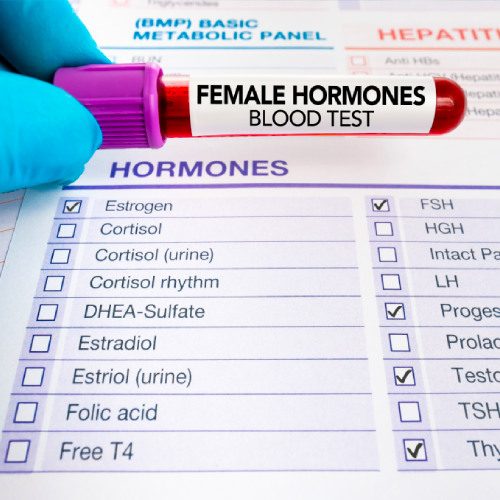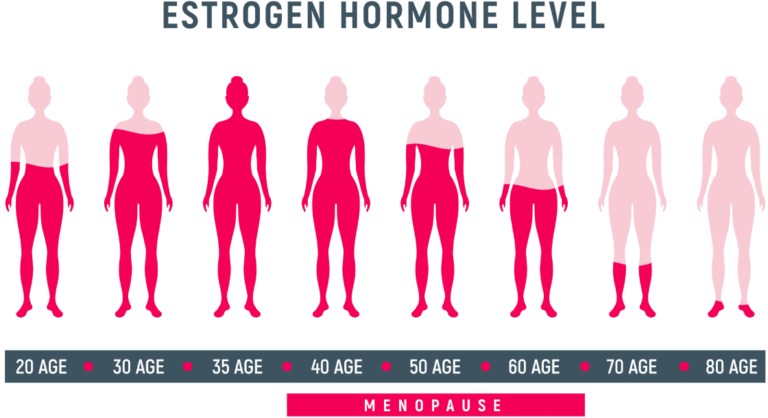Female Hormone Imbalance Therapy in San Diego
When a woman’s hormones are balanced and working properly life is good – but when things get imbalanced the result can be emotional and physical distress. Optimal hormone balance is crucial for physical and emotional well being as well as protection from age related concerns like osteoporosis and cardiovascular disease.

What Are Hormones?
Substances secreted by the glands in the body, which are transported through the bloodstream to a target, where they regulate the function of tissue. In other words, hormones convey information to the cells and tissue in the body.
Symptoms Of Hormonal Imbalances Include:
- Mood swings
- Sleep disruption
- Slow heartbeat or rapid heartbeat
- Unexplained weight gain or weight loss
- Fatigue
- Numbness and tingling in your hands
- Depression or anxiety
- Intolerance to cold temperatures
- Intolerance to warm tempatures
- Thin skin
- Acne on face, chest and/or upper back
- Hair loss
- Heavy periods
- Facial hair in woman
- Hot flashes
- Infertility
- Irregular periods
- Loss of interest in sex
- Vaginal atrophy
- Vaginal dryness

Causes Of Female Hormone Imbalance
Hormone imbalances are caused by a wide range of factors. These factors include genetics, medical history, toxin exposure, stress, and diet.
Major contributing factors to hormonal imbalances in women include:
- Being overweight/obese
- Food allergies/sensitivities/intolerances
- Gut issues/leaky gut
- Genetic susceptibility
- Inflammation
- Poor sleep
- High stress
- Exposure to toxins


How To Measure Your Hormones?
There are many laboratory kits available for measuring hormones including blood, urine, and saliva. Each approach has its own strengths and weaknesses.
Serum blood tests are the most common way of testing female hormones and are the gold standard for evaluating hormone levels.
The second most common way of testing female hormones is a 24-hour urine collection. The advantage with this test is that it accounts for the variations in hormone levels throughout the day.
Saliva testing is not often used to measure female hormones as research has not suggested it is very accurate in doing so.
Naturopathic Approaches To Balancing Female Hormones
Proper treatment of female hormone imbalances begins with understanding what is causing the imbalance in the first place. From there creating a nutrition and lifestyle plan that supports a healthy liver and gut to help metabolize excess estrogen in the body. Certain nutrients (vitamins and minerals) and enzymes are needed to support estrogen metabolism. From there it is important to ensure that the gut is able to effectively eliminate these metabolites from the body. In those that are constipated, this is likely not happening.
Additionally, if there is any dysbiosis or an imbalance in the gut flora, this can lead to an elevation in an enzyme called beta-glucuronidase, which results in higher levels of circulating estrogen in the body.
Other important lifestyle factors that naturopathic medicine focuses on addressing is exposure to synthetic estrogens called xenoestrogens.
Xenoestrogens are man made chemicals found in beauty and personal care products, plastic bottles and food containers, toys, thermal paper of receipts, just to name a few.
These chemicals negatively impact the body’s ability to eliminate estrogen and contribute to a greater estrogen dominant state.

Stress is another factor that needs to be addressed when looking to balance female hormones. Cortisol is a stress hormone made by the adrenal glands, the same gland that makes estrogen, progesterone, and testosterone in women.
When the body is in a chronic stress state, the body prioritizes making cortisol over the hormones because its trying to keep the body alive. This leaves fewer ‘raw ingredients’ for the adrenals to make the other hormones specifically progesterone. For this reason, building resilience to stress is always a part of a plan to balance a woman’s hormones.
Get Your Female Hormone Levels Tested Today
Book a discovery call with one of our experienced naturopathic doctors to learn how we can help.
Book your appointment in San Diego today!
Medical Conditions Are Caused By Hormone Issues
Some of the most common hormone-related conditions include:
- PMS – Premenstrual Syndrome (PMS): is a combination of symptoms including mood swings, breast tenderness, food cravings, irritability and depression. PMS is due to a complex interaction of hormones, neurotransmitters, and psychological factors.
- Menopause: Defined as the cessation of menses which is caused by the body’s decreased production of estrogen and progesterone. Most women will experience the beginning of menopause between ages 50 and 55.
- PCOS (polycystic ovarian syndrome): is a complex endocrine disorder that affects about 25% of women and involves the sex hormones in women to becoming unbalanced. Irregular periods and signs of high testosterone, in the form of facial hair in some, are signs of PCOS.
- Irregular periods: Several hormones are involved in the menstrual cycle. Because of this, an imbalance in any one or several of those hormones can cause irregular periods.
- Infertility: Hormonal imbalances are the leading cause of infertility in people assigned female at birth. People assigned male at birth can also experience hormonal imbalances that affect fertility, such as low testosterone levels.
- Hormonal acne: Hormonal acne (adult acne) develops when hormonal changes increase the amount of oil your skin produces. This is especially common during pregnancy, menopause and for people who are taking testosterone therapy.

Types Of Female Sex Hormones
The focus is on the two main female sex hormones, estrogen and progesterone. It is worth noting that although testosterone is male hormone, females produce a small amount of it as well.
Estrogen

Estrogen supports many parts of a woman’s body including:
- Brain- increases acetylcholine (brain chemical crucial for memory)
- Mood – involved in the production of ‘feel good neurotransmitter’ serotonin
- Cardiovascular system – helps maintain healthy cholesterol levels
- Hair – support healthy hair growth
- Bones – influences how your body uses calcium
- Musculoskeletal system
- Skin – helps in prevention of skin aging
- Urinary tract – keeps vaginal tract healthy


Progesterone
Progesterone is another sex hormone produced by the ovaries specifically after ovulation.
A woman’s placenta also produces some during pregnancy.
The role of progesterone is to:
- Prepares the lining of the uterus for a fertilized egg
- Support pregnancy
- Regulates blood pressure
- Support healthy mood and sleep
- Suppress estrogen production after ovulation
What About Hormone Replacement Therapy?
Sometimes in combination with addressing the factors mentioned above, naturopathic doctors may use prescription hormone therapy.
There are two kinds – bio-identical hormones and traditional hormone replacement therapy (HRT). Bio identical hormones are derived from plants and are designed to mimic the same molecules your body produces, thus their name bio-identical.
They are a good option to safely replace hormones when levels decline. HRT on the other hand, is synthetically derived and if often associated with burdening the liver and leading to negative side effects.
Ready to schedule an appointment?
